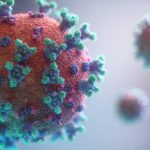Over the last few decades, technologies such as gene sequencing have revolutionized the way we understand aging and its implications for disease. Aging means a different thing than it did just a few decades ago, opening up a number of new strategies and technologies to deal with its effects.
Today, longevity research and geroscience aim to prevent and delay age-related disease (ARD) and increase healthspan. This is related to, but not the same as, lifespan. Healthspan is the period of a person’s life where they are not burdened with one of many chronic age related diseases and can live a normal, active lifestyle. Whereas lifespan, of course, is the total duration of a person’s life. While researchers are interested in expanding the total lifespan of individuals, another essential and often overlooked component of improving aging and longevity is increasing a person’s healthspan as a subset of their total lifespan.
Researchers are tending toward the conclusion that aging itself is a disease that causes ARDs, and that aging can and should be treated as a disease. They are increasingly interested in exploring lifestyle changes and clinical interventions that may be able to extend a person’s healthspan and delay many ARDs.
What We Can Learn from Genetics and Centenarians
- Centenarians (people who live to the age of 100) are extremely rare, with only 1 out of 5000 people reaching that age.
- 1 out of 250,000 people reach semi-supercentenarian status, achieved at the age of 105. Supercentenarians are even rarer, with only 1 out of every 5 million people reaching the age of 110+.
- While people age differently at ages beyond 100, as they get older than that, they begin to show similar phenotypes and display more and more similarities to each other.
- Around 90% of people who will reach the age of 100 do not develop ARDs or disabling diseases throughout their early 90’s.
- By the age of 100, only 15% of people remain unaffected by disabling diseases.
- However, supercentenarians are more genetically similar to each other, with 70% of them escaping age-related diseases by the age of 100.
- In order to live to age 90, around 75% of the way you age is determined by your health behaviors. If you’re lucky enough to live to 105+, around 75% of how you age is determined by around 200 special protective genes.
- It’s likely that semi-supercentenarians and supercentenarians still have ARD related genes, but also have these protective genes.
- It may be possible to isolate these protective genes and translate their effect into future medicines.
- New studies are trying to discover the genetic resiliencies that centenarians have for diseases like alzheimers. Many centenarians have genetic markers suggesting that they might be predisposed to alzheimers, but then never display symptoms in later years.
How Ketones Can Help Us Understand Aging
- Ketones are molecules that the body can produce and use as fuel when carbohydrate availability is low. Evolutionarily, ketones probably developed as a mechanism to fuel brain function when the body is starving. However, most organs in the body can also use ketones as fuel.
- We’ve more recently come to understand that ketones are not just fuel. They also bond directly to proteins, producing specific signaling effects which trigger helpful biological processes that intersect with aging.
- Active ketobodies may play a role in the expansion of lifespan and healthspan.
- Research has revealed that many people who will go on to develop chronic cognitive decline first experience a decrease in the ability of the brain to metabolise glucose. However, brain ketone metabolization ability appears to be unaffected in this group.
- Giving aging people regular ketone supplements seems to improve brain energy and function, possibly rescuing their brains from energy starvation and decline. Studies have shown that patients who receive these ketone diets demonstrate evidence of cognitive improvement.
- During aging, the heart often displays signs of metabolic decline and energy supply disruption. Ketone supplements may also be able to rescue the heart and cardiac system from the effects of this decline, reducing oxidative stress, inflammation, and fibrosis.
- Ketones seem to act as signaling metabolites through receptor bindings and epigenetic mechanisms.
Is Fasting the Answer?
- Specific types of fasting have proven to reliably expand both lifespan and healthspan. This has a profound effect on most major chronic illnesses, including neurodegenerative, cardiovascular, and autoimmune diseases.
- Importantly, fasting does so without adding anything to the individual’s system. Fasting simply triggers a person’s natural protective and regenerative processes.
- Companies are decoding the effects of human fasting and trying to replicate them with low-impact drugs.
- One way to do this is to supplement individuals with the chemicals and molecules that their body would naturally produce during a prolonged fast. By recreating the physiological effects of fasting, these drugs may be able to improve health outcomes.
- Studies show that 36 hour fasts improve plasma’s ability to reduce inflammation, have protective antioxidant effects, and produce cardioprotective effects.
- Traditional fasting produces profound effects on the body’s metabolic state, significantly changing the state of at least 300 metabolites. Four of these metabolites seem to be able to synergistically replicate all of the beneficial effects that normal fasting has on the body.
- Researchers posit that supplementing a diet with a fasting mimetic drug can help reduce the compromising effects that eating has on plasma anti-inflammatory ability, plasma antioxidant ability, and plasma cholesterol efflux ability.
- A study done on a population of roundworms found that regularly taking this fasting mimetic supplement increased their lifespan by a median of 96%. Compared to a control group of worms that were denied food in order to activate a traditional fasting response, the population given the fasting mimetic lived longer.
- By combing through different natural responses to different conditions, researchers may be able to develop further mimetic supplements that increase health outcomes.
Each month, iSelect hosts a series of Deep Dive webinars like this one that examine issues directly related to our portfolio companies and investment thesis. Please register to be notified of future events and join the conversation.






